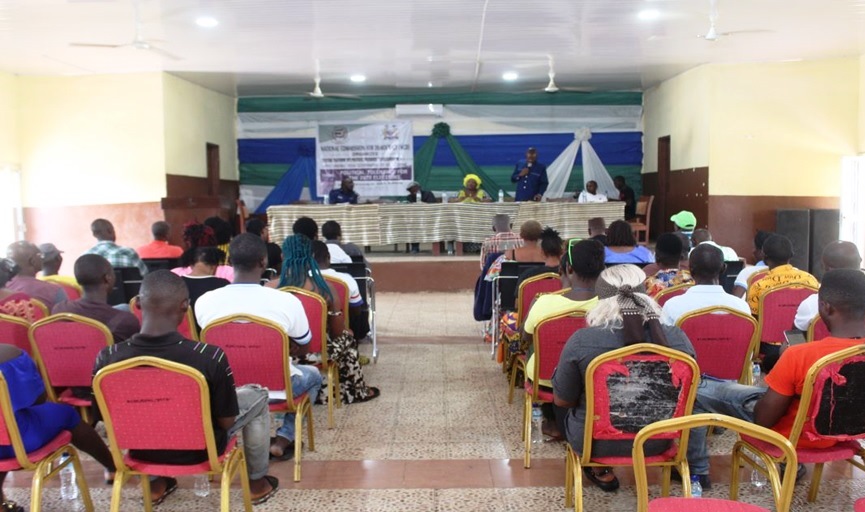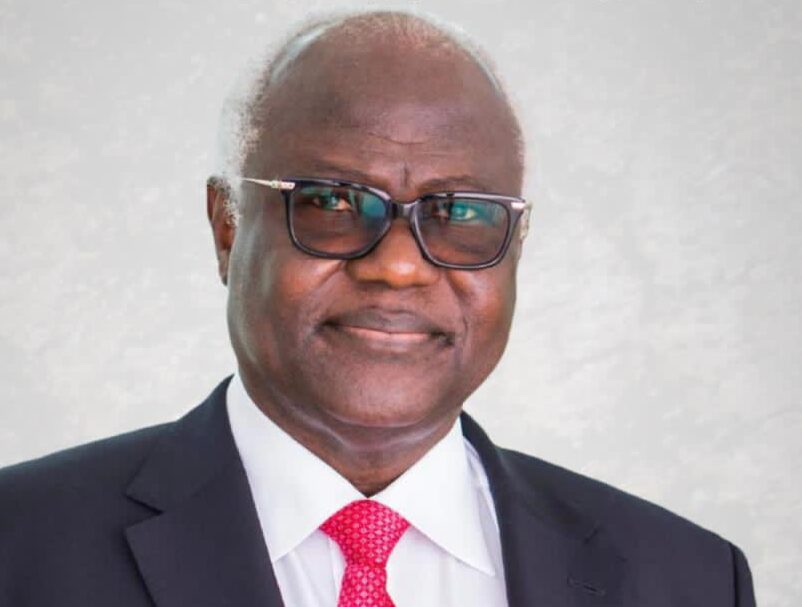As we get closer to the June 24, 2023 multi-tier elections, the National Commission for Democracy (NCD) continues with its district stakeholders engagements targeting political parties, traditional authorities, youth groups, women, first-time voters and persons with disabilities in Kailahun, Tonkolili and Karene to mitigate political tension and promote political tolerance and mutual respect before, during and after the June, 2023 elections. The Commission used the occasion to officially launch the Citizens’ Platform for Political Tolerance (CPPT) and encouraged the participants to use the platform as a conduit to reach out to their communities to enhance a violence-free and politically tolerant electioneering process for the 2023 polls. These meetings were hosted at the District Council Halls of the various districts on the 17th June, 2023 with staff from the Headquarters of the Commission providing the much needed support for the Regional Officers to effectively rollout these very important interventions.
Leading the teams for the East and Southern regions were the Chairman of the Commission, the Commissioner for the Eastern Region and the Director of Programmes of NCD, Madam Marian Angela Samu, Pastor Momoh Bockarie and John Augustine Lahai, respectively. For the North and North-Western regions, the teams were led by the Executive Secretary, the Director of PR and Communications, the Director of Research and Monitoring and the Director of Admin and Human Resource of the Commission, Abdul Rahman Conteh, Rev. Gibrilla Kargbo, Idriss Din-Gabisi and Alhaji Mark tholley, respectively.
The occasions were characterized by statements from representatives of governance institutions, including the Electoral Commission for Sierra Leone (ECSL), the Political Party Regulation Commission (PPRC) and the Office of National Security (ONS) providing updates about elections preparedness and the security status of the districts. These informative statements were followed by presentations on the formation of the Citizens’ Platform for Political Tolerance and political tolerance as a concept of democratization.
The Presentation on the formation of the Platform indicated that the CPP was created in 2017 prior to the 2018 general elections with support from the United Nations Development Programme (UNDP) under the project titled: “Conflict Prevention and Mitigation Project for the 2018 Electoral Cycle in Sierra Leone”. It was noted that the CPP was Co-chaired by the National Commission for Democracy (NCD) and the Network Movement for Democracy and Human Right (NMDHR), respectively. The presentation further revealed that the Platform was officially launched in 2017 at the National Stadium Hostels with thirteen (13) out of the fourteen (14) registered political parties for the presidential elections committing themselves to promote a peaceful and politically tolerant 2018 general elections. The Chairman of NCD, Madam Marian A. Samu, noted that the overarching objective of the CPP is to promote political tolerance and mitigate elections violence. Madam Samu intimated participants that prior to the 2018 elections, the Commission held meetings with stakeholders in six districts that were considered to be prone to violence including, Bo, Kenema, Tonkolili, Port Loko, Moyamba and Freetown. She noted that with the revival of the Platform, stakeholders should make good use of it to enhance tolerance and mutual respect between and among supporters of the various political parties. Madam Samu also informed her audience that the Commission had hosted Paramount Chiefs (PCs) in a cross regional dialogue programme in Kenema and Port Loko, bring together PCs from the North and Eastern regions and the South and North-Western regions, respectively to dialogue about the need to enhance political tolerance in their respective Chiefdoms. She said during these meetings of eminent traditional authorities, the CPP was launched in Kenema and Port Loko for all the Chiefdoms.
Presenting on the Concept of Political Tolerance, the team Leads in the various districts elucidated the concept with succinct and clear explanation of the definition of the concept of political tolerance both from the academic and layman perspectives. The presentation attempted to suggest the reasons for the acute political intolerance in the country even as it proffered recommendations that may possibly address the problem of political intolerance in Sierra Leone. Some of the issues the presentation highlighted as the cause of political intolerance ranges from lawlessness and arbitrariness, misinformation and disinformation through social media platforms, abuse of drugs and youth unemployment and the lack of equity in the distribution of state resources. Some of the recommendations provided included, respect for the rule of law, responsible use of the social media, drug control, and employment for the youth and equitable distribution of state resources.
The Chairman and other presenters of the Concept encouraged participants to engage their communities and educate them about the need to embrace one and other even when they do not share the same political views. They noted that Sierra Leone operates a multi-party democratic system of governance and therefore creates room for the formation of political parties. It was emphasized that people have the right to belong to the party of their choices but should be seen to be tolerating the views of one another so that a peaceful electioneering process will prevail. The climax of the occasion saw political party representatives ascending the podium to make a commitment about promoting political tolerance and mitigating political tension even before the National Pledge was recited to remind participants about the need to put the country above all else.











